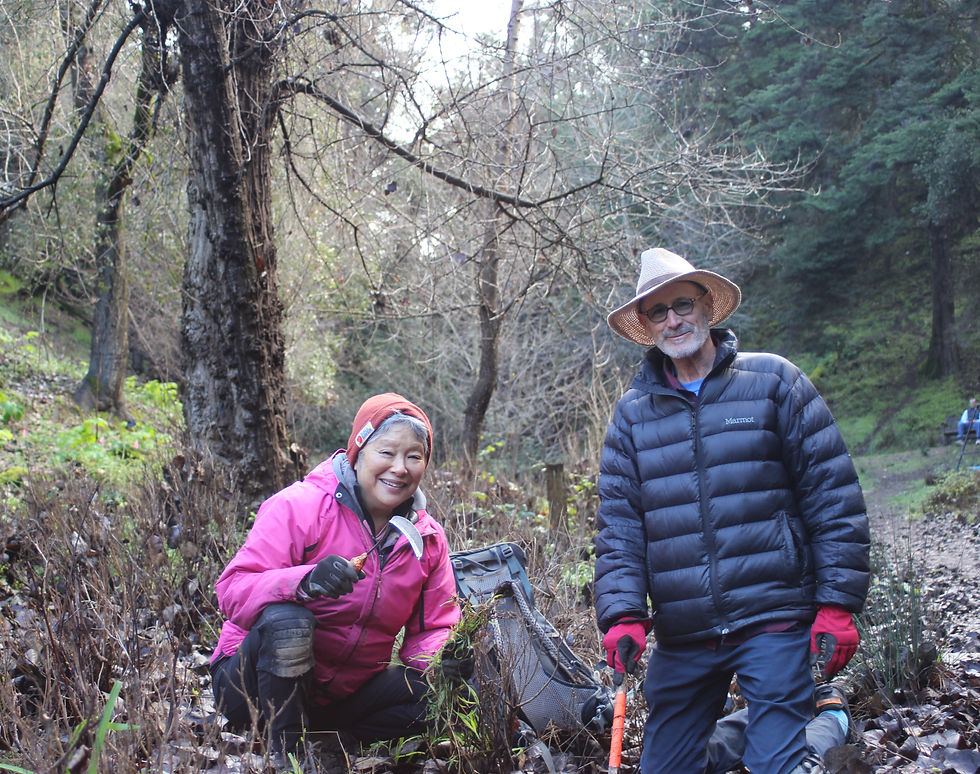What Lurks Below | The Tiny Titans of Sausal Creek's Ecosystem
- Friends of Sausal Creek
- May 20, 2024
- 2 min read

A moth pupa found in Joaquin Miller Park, while removing invasive grass from a serpentine rock slope.
For the last few months, I have been volunteering regularly with Friends of Sausal
Creek, and during that time, I have encountered countless invertebrates–many of which I have accidentally evicted in my weeding efforts. These little friends are not only cute, but they also play vital roles in our ecosystem and their presence is indicative of the healthy environment we are working to cultivate.
There are a wide range of garden invertebrates, most of which are completely overlooked, despite their importance in the health of thriving green ecosystems. One of the most well-known but least-appreciated invertebrates are common earthworms. I’ve discovered these annelids everywhere, which is indicative of healthy soil because the role of a worm is to aerate the soil and to enable it to cycle water and nutrients. This helps create optimal soil for the plants that take root there.
I’ve also found several spiders during my work for Friends of Sausal Creek, and although many people are afraid of spiders, far less than 1% of spiders are actually dangerous to humans. Spiders take on the important task of managing insect populations to keep the ecosystem balanced.
I’ve also seen quite a few slugs and woodlice (AKA “pill-bugs” or “sow-bugs”) during my time in the forests of Oakland. Like the earthworms, these are detritivores who are responsible for breaking down dead plant matter so that it can be recycled as nutrients. Imagine how dense the forest floor would be with dead leaves if these gastropods and crustaceans did not do their important jobs.
The final, and maybe most interesting things I found are moth pupae. In my work removing grass from a serpentine rock slope, I uncovered several chrysalises from which moths will emerge. They’ll then go about executing their essential function as nocturnal pollinators. Similar to bees and butterflies, moths pollinate flowers, including those of fruits and berries–playing a vital part of the reproductive cycle of native plants. Yet these critical critters also often go overlooked and underappreciated.
As I've learned through my hands-on experiences with Friends of Sausal Creek, even the smallest creatures play monumental roles in our world. Without them, the ecosystems around us would be unable to properly function. So now that I’ve helped you understand how important these little guys are, I’m hoping that you can do your part to support these unsung heroes of our habitat. Do this by working to preserve or restore local habitats, cultivating and planting native species, and removing invasive ones. All of these will help these tiny titans of our biosphere survive and thrive!
–Malcolm Amado, 11th grader at Athenian High School


